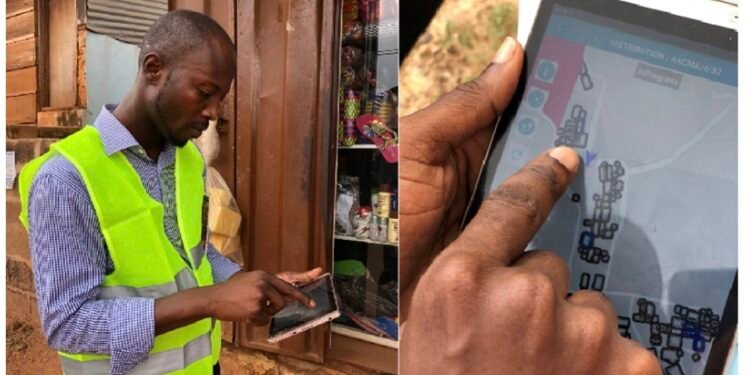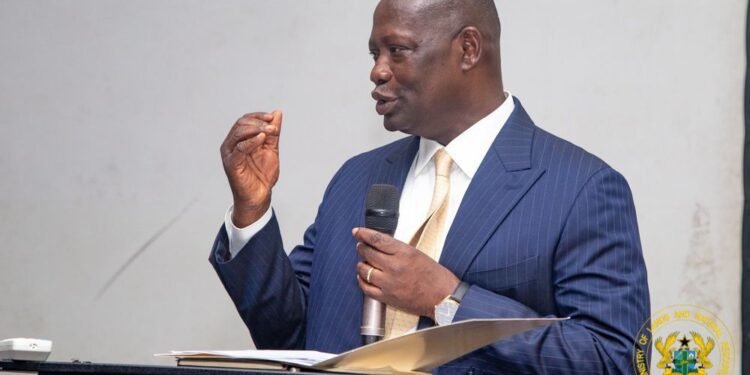Reading culture has long been a cornerstone of education, personal development, and cultural preservation.
In Ghana, a country with a rich tapestry of languages and stories, reading has historically played a vital role in shaping societal values and fostering intellectual growth. However, recent trends indicate a worrying decline in reading culture, especially among the youth.
Factors such as the rise of digital media, inadequate access to books, and a lack of emphasis on reading within educational curricula have contributed to this phenomenon.
Renowned director and actor, Fiifi Coleman, has raised concerns about the rapid decline of reading habits among Ghanaians, especially the youth, attributing the trend to the rise of digital distractions and lack of institutional encouragement.
Fiifi Coleman lamented the worrying trend: “We have lost the reading culture in Ghana.”
He blamed platforms like television, iPads, Instagram, and TikTok for shifting attention away from books and intellectual engagement.
“No one checks the reading attitudes of Ghanaians anymore. Schools used to reward people who were reading, but they do not do that anymore.”
Fiifi Coleman
The actors comments highlight growing concern about how modern technology and entertainment are affecting literacy and cultural appreciation in the country.
The decline in reading habits in Ghana is attributed to several interrelated factors. Firstly, the proliferation of digital devices and social media has shifted the focus of young people from reading traditional texts to consuming fast-paced, visually driven content.
Reports indicate that many students spend more time on social media platforms than engaging with books, leading to a decrease in reading comprehension and critical thinking skills.
The accessibility of books remains a significant barrier. While urban areas have libraries and bookstores, rural communities often lack sufficient resources. The high cost of books further exacerbates the issue, making it difficult for many families to prioritize reading.
Additionally, educational systems in Ghana have often undervalued reading as a skill, focusing instead on rote learning and examination performance.
Reviving Ghana’s Reading Culture

Reviving Ghana’s reading culture is not merely an academic exercise; it is essential for the nation’s intellectual and cultural development.
Reading fosters critical thinking, enhances vocabulary, and improves communication skills—attributes that are crucial for personal and professional success.
Moreover, a strong reading culture can help preserve Ghana’s diverse literary heritage, allowing future generations to connect with their roots and cultural narratives.
Schools should prioritize reading as a core component of the curriculum. This is achieved by incorporating more literature into lessons, encouraging independent reading, and creating book clubs that foster a love for reading among students.
Teacher training programs should also emphasize the importance of instilling reading habits in students.
Local communities play a critical role in promoting reading. Initiatives such as community reading events, book fairs, and reading challenges encourages participation and create a sense of collective responsibility towards fostering a reading culture. Partnerships with local authors and publishers also helps to promote Ghanaian literature.

Increasing access to books is crucial. Government and non-profit organizations should collaborate to establish more libraries, especially in underserved areas. Programs that provide free or subsidized books to students helps bridge the gap for families that struggle to afford them.
Celebrating Ghanaian authors and their works inspire pride in local narratives and encourage young people to read. Schools and libraries should highlight Ghanaian literature in their collections and curricula, making it a focal point for readers.
The decline of reading culture in Ghana is a pressing issue that requires immediate attention. By recognizing the importance of reading and implementing strategic initiatives to revive this cultural practice, Ghana empowers its youth and ensure the preservation of its rich literary heritage.
A collective effort from educators, families, and communities is essential to create an environment where reading is not only encouraged but celebrated.
In doing so, Ghana cultivates a generation of informed, thoughtful, and culturally aware individuals who will contribute to the nation’s growth and development. The time to act is now; itdividuals must reignite the passion for reading in Ghana and secure a brighter future for all.
READ ALSO: Ghana’s Legal Education Bill Called ‘Half A Solution’























